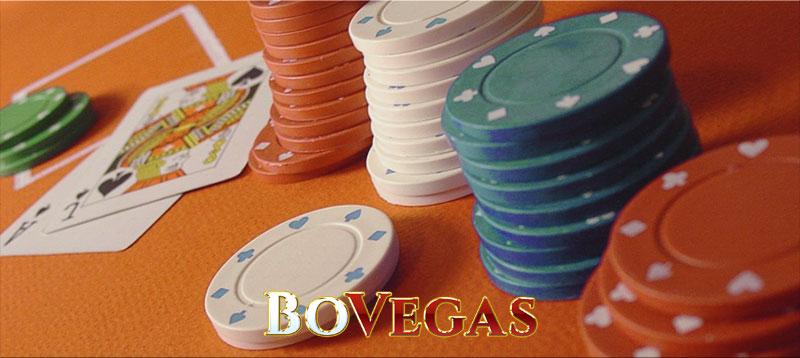



Limping can be a very touchy subject for poker players. Some players like it, so they can see cheap flops; especially when they’re holding speculative hands, like suited connectors or small pairs. Other players believe you should never limp, because by limping, you’re inviting players into multi-way pots, and thus limiting your chances to win the hand! While we tend to side with the more aggressive players, we certainly can’t tell you that limping is never the right play. But what we can tell you though, is that it’s not usually the best play.
Let’s start by looking at why players limp in the first place. As we’ve mentioned already, many players like to limp with speculative hands they don’t feel comfortable raising with preflop. In these cases, they’re hoping to get lucky by hitting the flop hard and winning a big pot, or being able to let the hand go without costing themselves too much money. The problem is that the players who like to limp with speculative hands are limping with a very specific set of hands; and essentially, whenever they limp, they’re letting the other players in the pot know something really significant about their hand. I.e., that they have something like suited connectors or small pairs. In other words, the limp is basically turning their cards face up to their opponents, which is something we really have to try hard not to do in poker.
Another reason players will limp is to “trap.” The difference here is that instead of limping with a speculative hand, i.e. kind of trying to get lucky on the flop, players here are giving it a big hand, like Aces or Kings, and are hoping to win a big pot while they either flop a set, or they overpair holds up, and their opponents don’t really put them on that. While there can be benefits to this play, it is fairly certain that the downside often outweighs the reward. Let’s say you’ll find Aces in early position, and decide to trap opponents by limping into the pot. Ideally, you’re hoping for someone to raise behind you, so that you can then re-raise and isolate them in a heads-up pot, where you’re likely to be a big favorite!
This is the №1 problem with the limp. When you do re-raise your opponent, now it’s really easy for them to fold a hand like, say, two Nines or Ace-Jack. Whereas, if you just open the pot for a raise with your aces, those hands like Ace-Jack or two Nines would probably re-raise you; and then they can really go broke to you!

Not only can limping put you into uncomfortable post-flop situations, but it also takes away the potential for you to go ahead and win the pot preflop. Remember: one of the goals of raising preflop is to thin the field of players with marginal hands who are looking to see cheap flops. If you don’t raise either with your premium hands or your speculative hands, you’re removing an essential weapon from your poker arsenal.
So is limping always wrong? No! There are times when it may pay to try it, but only under very specific circumstances.
In this article, we tried to explain that limping doesn’t always indicate the weakness of the player’s hand. Phil Ivey, for example, can say a lot about perfectly timed and counted-up limping, that had allowed him to significantly increase lots of pots during his career. If you don’t let the opponent know your play and you’ve developed a suitable image of yourself for the other players, you can still benefit a great deal from limping.

The significant money turnover to be found at the casino has always been attractive to people who want to grab some winnings. But with all that said, it’s interesting to find out how they’ve found some ways to bring on their side something bigger than luck… And no, we’re not talking about guns! Instead, let’s […]
Many roulette players focus on odds and chances, stakes and winning streaks and the game itself. But another side of the game – what the roulette dealer is doing – remains largely unknown. Many players perceive the dealer as a part of the game (and, perhaps, of the whole casino) and normally pay him/her little […]
People have been gambling all the time, on every continent, and in every type of society. Don’t ask us why. We just do not know. What we know is that the majority of the games are too old to be traced down to their roots and origins. But mankind has always tried to solve all […]
When it comes to sports betting, nobody can beat Jon Price! This outstanding guru has built his fortune on a flawless system that allows him to predict the outcome of any sports event. His natural talent and charisma have led him to the very pinnacle of the gambling world, catapulting him to various leading positions […]
If you love gambling and have been to a land-based casino at least once, you may have thought about becoming a dealer. Playing the same game but from the opposite side, while communicating with other players, sounds like a dream job, right? A dealer is a straightforward job, and you will be the heart and […]
On Monday September 14, MGM announced that it plans to open its first smoke-free casino at the end of September, when Park MGM will finally reopen its venues to players and tourists. The resort comprises around 2,990 rooms and various restaurants, and it’s set to be reopened on September 30. The venue has been closed […]
Online gambling has undoubtedly taken a place of true supremacy over the casino industry during the pandemic. And the reason for that is quite clear: online casinos are more accessible, and you can always count on some encouragement from the casino administration to help you boost your game. However, this digital revolution has only been […]
The large selection of online gambling sites out there can make players somewhat puzzled, and give them a feeling of uncertainty about making the right choice of casino. Each online gambling venue offers its own conditions, games, and various bonuses, of course; but the most important thing is the reliability of the casino and the […]